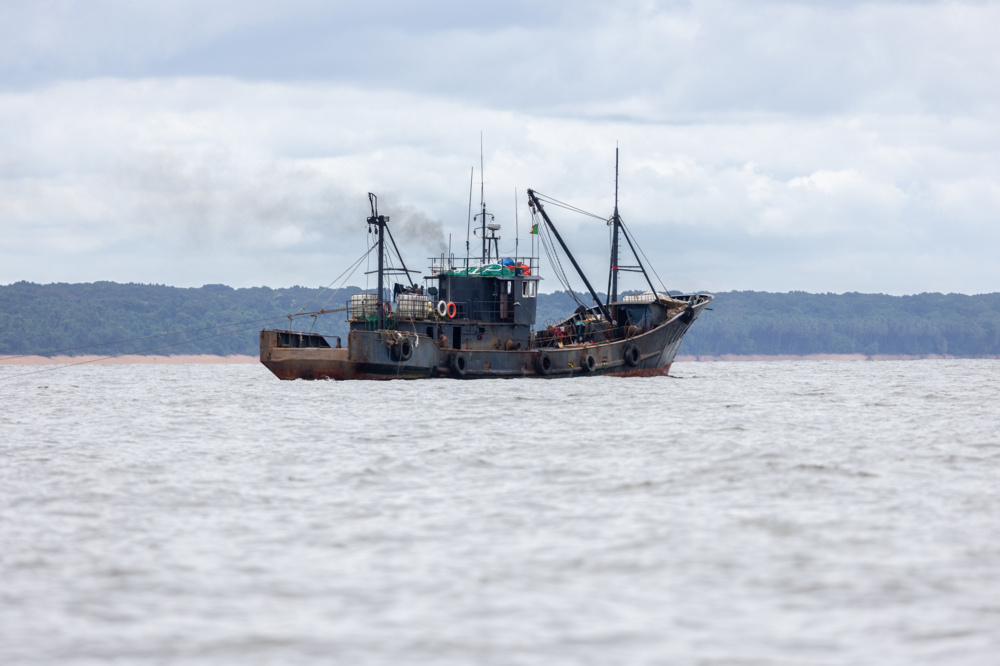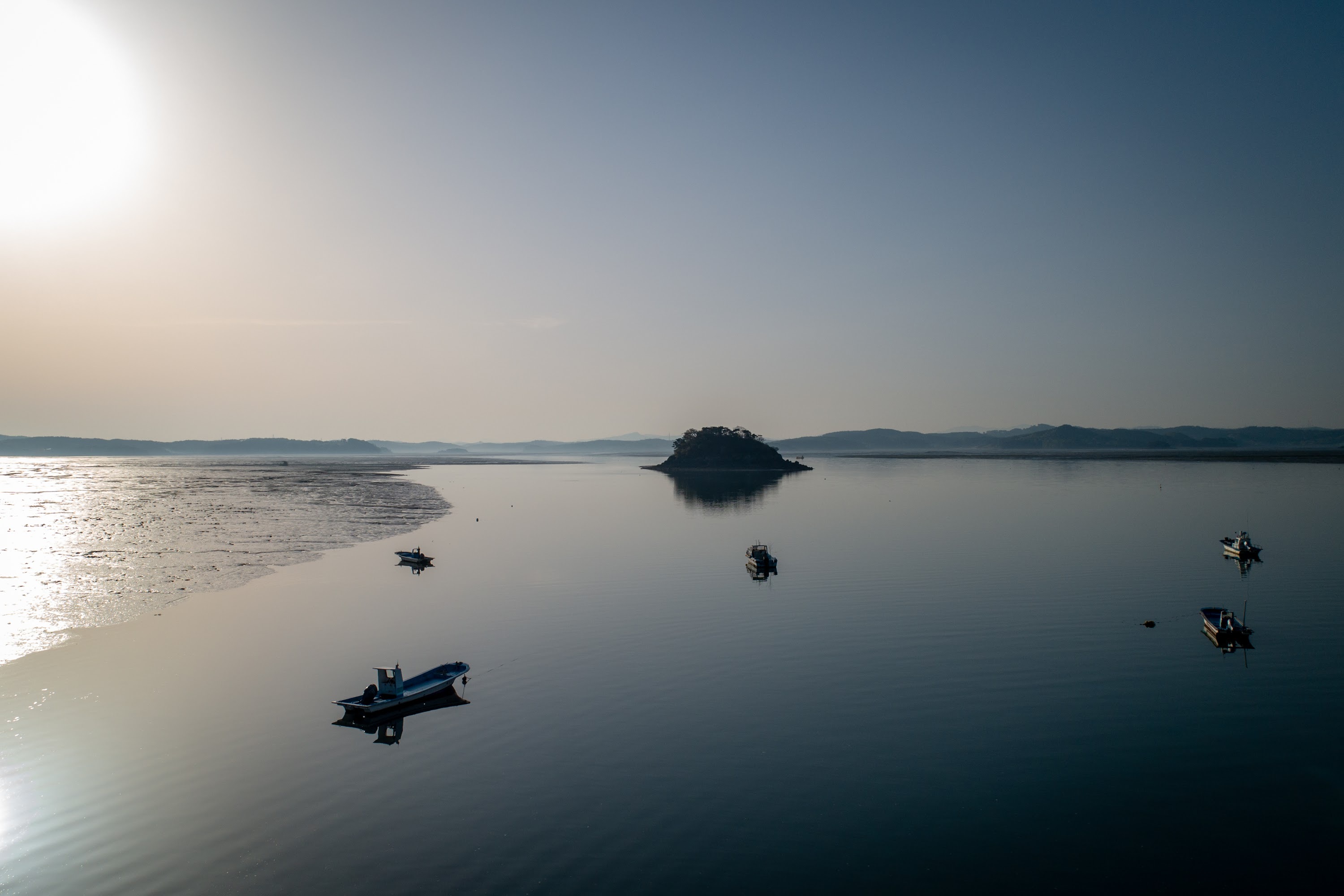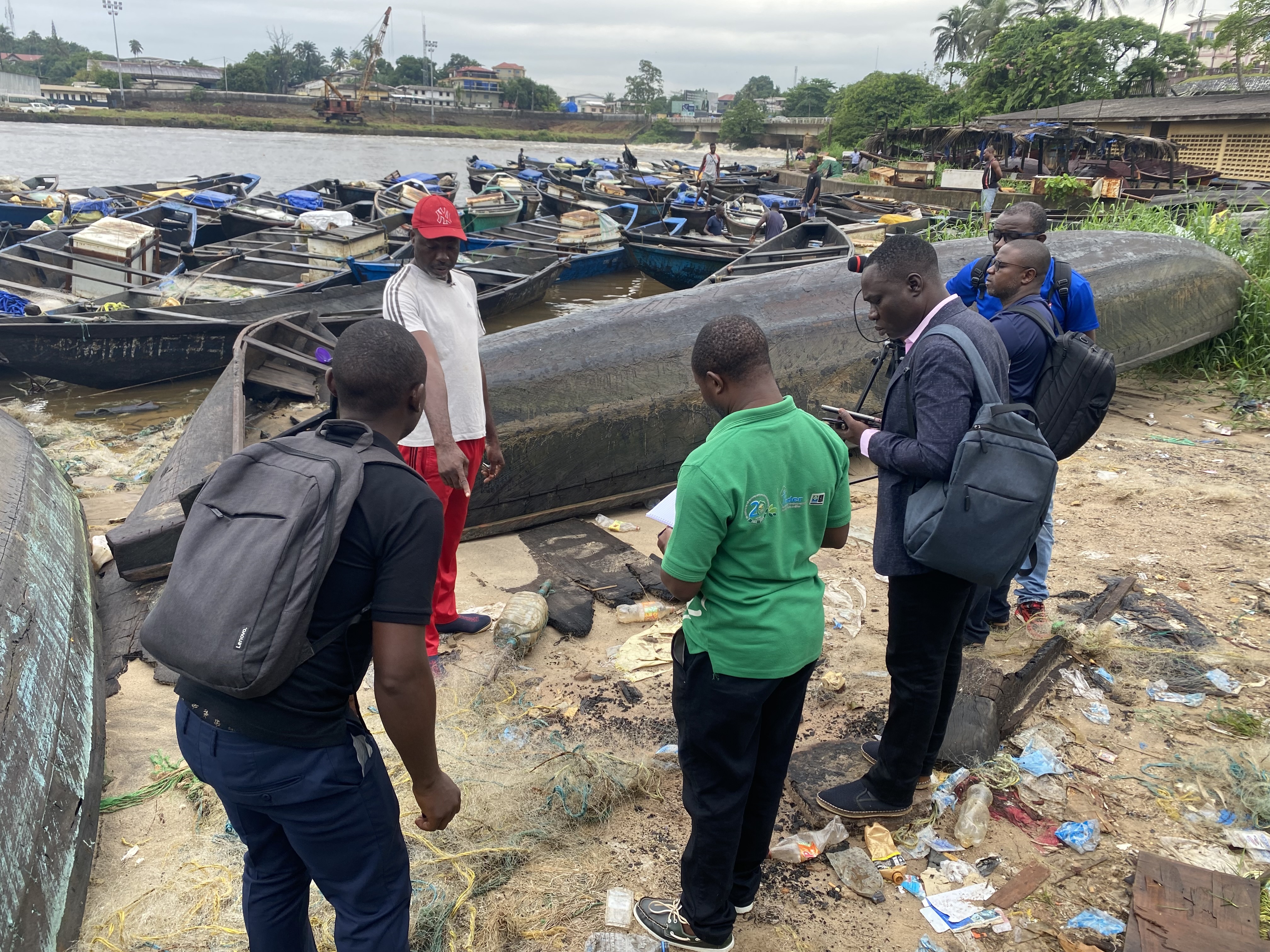
New film exposes the hidden toll of illegal fishing in Cameroon and calls for urgent transparency reforms
A new film released by the Environmental Justice Foundation (EJF) lays bare the impacts of illegal fishing on Cameroonian coastal communities, highlighting widespread lawbreaking, human rights abuses, and the urgent need for fisheries transparency.
The film features testimony from Cameroonian crew and small-scale fishers whose livelihoods are being destroyed by foreign-owned trawlers operating illegally in national waters.
Under Cameroonian law, trawlers are banned from fishing within five nautical miles of the coast, where only artisanal fishing is permitted. Yet these laws are routinely flouted. As one crew member revealed: “There is never a trip when the boat does not come near the shore.”
For small-scale fishers, the consequences are severe. “We even call the fish our saviour. It is the fish that saves us. Through the fish we send our children to school. Through the fish we buy everything that you see here,” said Benson Okonniyin Abel, a fisher from Mbiako. “But today, they don’t stop. Night, daytime... At times they come in numbers, 10 or 12.”
In Yoyo, fisher Ladi Ben described how the destruction of his gear forced him to abandon fishing altogether: “I’m tired. I stopped fishing. I don’t do anything related to it because it brings only losses to me.”
Crew working aboard these vessels also described gruelling and abusive conditions, with no contracts, inadequate food and water, and violence at the hands of foreign officers. One fisher explained: “At the slightest mistake: fight — and their fight is always… It’s the machete, the knife.” Another added, “I think only our leaders can do something about it. Only our leaders can turn the table. All that is needed is the will to do so.”
Cameroon has taken several steps since receiving a European Commission ‘red card’ in 2023, banning the sale of fish to the EU market, for failing to tackle illegal fishing. They include adopting a new Fisheries and Aquaculture Law in December 2024 and endorsing the Global Charter for Fisheries Transparency in April 2025. However, enforcement and accountability remain weak, leaving ecosystems, communities, and national revenue at risk, the film explains.
Dr Badaï Élie, Chief of Cameroon’s Fishing Activities Control and Surveillance Brigade, stressed the importance of protecting artisanal fisheries, which provide more than 80% of national production: “When IUU fishing is reduced in Cameroon… the quantity of [local] seafood will increase, and there will be fewer imported products.”
Steve Trent, CEO and Founder of EJF, said: “Illegal industrial fishing is stealing the food from Cameroonian tables. Illegal fishers wipe out jobs, destroy ecosystems, and exploit their workers. The Cameroonian government has taken some encouraging steps, but much more must be done to ensure that laws are enforced, perpetrators are held to account, and transparency becomes the norm.”
“This can and must include following up on Cameroon’s recent endorsement of the Global Charter for Fisheries Transparency by fully implementing its principles. Only then can Cameroon secure sustainable, legal and ethical fisheries.”
The next step is Cameroon putting its new fisheries law into action. That means adopting the 'implementing decree' that makes it enforceable, sharing it widely, and ensuring it is implemented on the water and in communities. Without this, the law risks being words on paper while illegal trawlers continue to devastate livelihoods and the ocean, says EJF.
ENDS
Notes to editors
Watch the film here. At the time of filming, Cameroonian law banned trawlers from fishing within three nautical miles of shore. This has since been expanded to five.
About EJF
Our work to secure environmental justice aims to protect our global climate, ocean, forests, wetlands, wildlife and defend the fundamental human right to a secure natural environment, recognising that all other rights are contingent on this. EJF works internationally to inform policy and drive systemic, durable reforms to protect our environment and defend human rights. We investigate and expose abuses and support environmental defenders, Indigenous peoples, communities, and independent journalists on the frontlines of environmental injustice. Our campaigns aim to secure peaceful, equitable and sustainable futures. Our investigators, researchers, filmmakers, and campaigners work with grassroots partners and environmental defenders across the globe. For more information or to organise an interview with one of our team, please contact media@ejfoundation.org.
SIGN UP FOR OUR EMAILS AND STAY UP TO DATE WITH EJF

